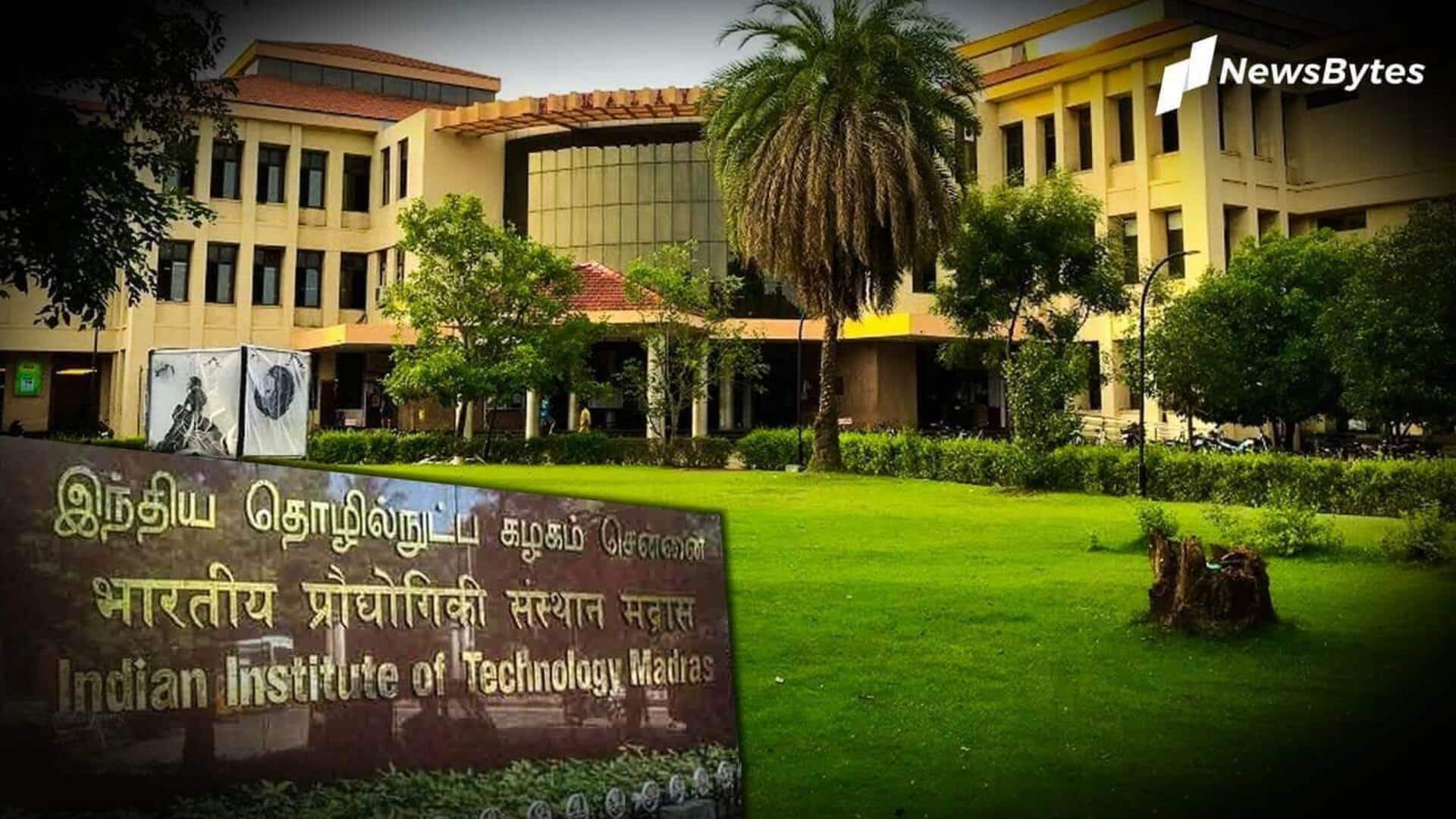
IIT-Madras under scrutiny for conducting unpermitted 'product test' on students
What's the story
The Indian Institute of Technology (IIT)-Madras is under fire for conducting a "product test" on students of Vana Vani Matriculation Higher Secondary School, located on the institute's campus, the Indian Express reported.
The controversy arose after parents alleged they weren't informed or sought consent before the test on August 19.
As part of the test, students were allegedly made to wear a "smart insole" and smartwatch to gather data as they walked and jumped short distances.
Inquiry launched
State education department initiates inquiry
In light of the allegations and complaints of inaction from IIT-Madras management, the state education department has initiated an investigation.
The school's principal has also been replaced in this regard.
Parents have also filed a complaint with the State Human Rights Commission (SHRC) alleging that the test violated regulations under the New Drugs and Clinical Trials Rules, 2019, and the Drugs and Cosmetics Act, 1940.
Institute's response
IIT-Madras denies conducting clinical trials
SHRC member V Kannadasan told IE that they received complaints regarding alleged invasive aspects of the trial process.
"We have already demanded a reply from the state school education director," Kannadasan said.
However, IIT-Madras, which runs the school, has refuted claims of conducting clinical trials or medical device testing.
The institute described the activity as a feasibility study for a cost-effective smart insole made from commercially available components, insisting that no invasive procedures were involved.
Study details
IIT-Madras clarifies nature of study, admits oversight
IIT-Madras further clarified that the study lasted less than 10 minutes per student and involved no invasive procedures or administration of substances.
The institute assured the insole didn't make direct contact with students' bodies.
A communication from the school's managing committee acknowledged that parental consent should have been obtained for future activities, even though this study did not include any stimulants or harmful actions.